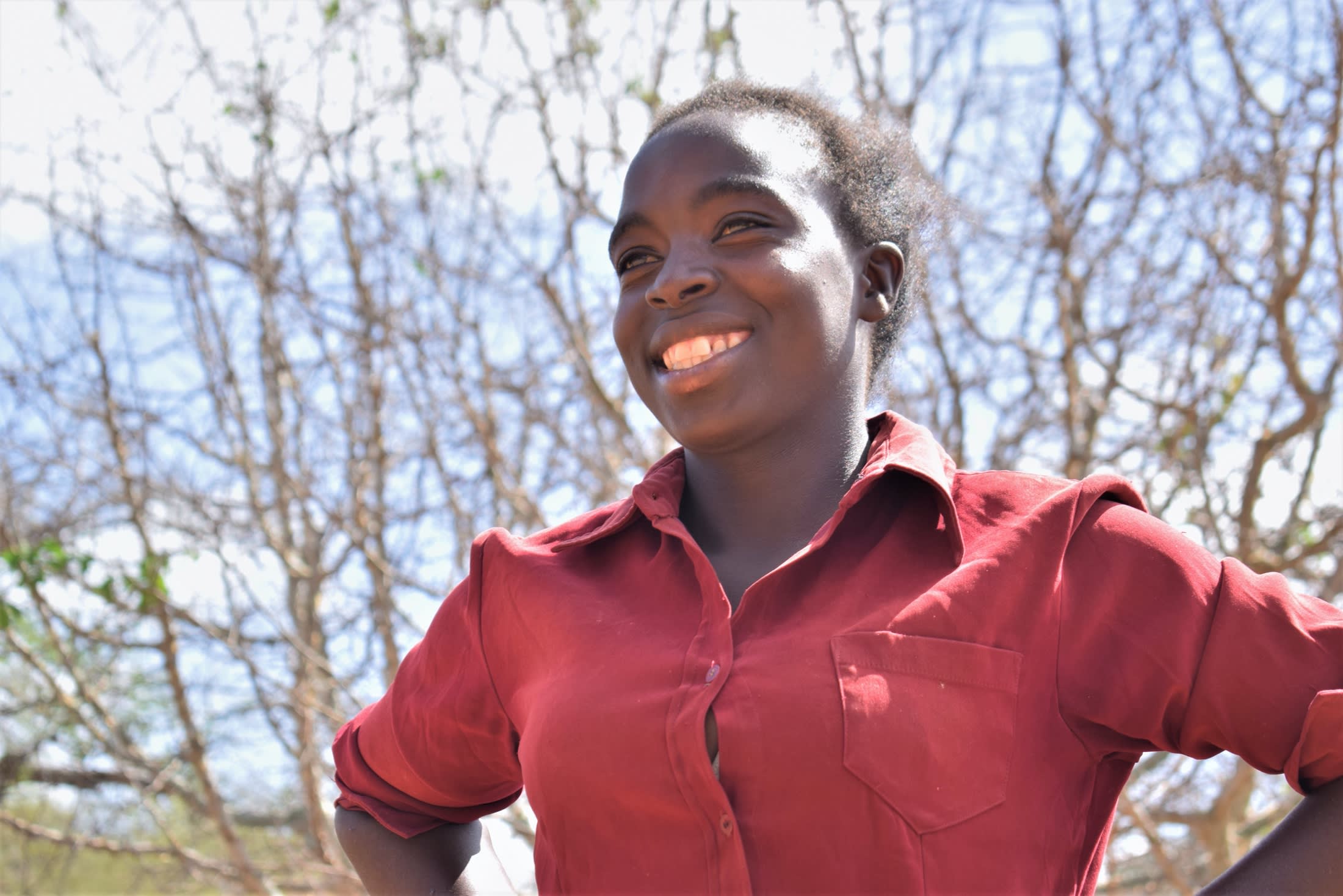Maluvyu Village is very rural and peaceful, despite the fact that it's close to Kathonzweni market center, the administrative headquarters of the division. The area is generally dry and arid. Most of the buildings are family homes made of a mix of both brick, mud, and grass-thatched shacks.
Maluvyu is home to the Ngwatanio ya Utui Wa Maluvyu Self-Help Group, which is made up of farmers who unite to address food and water scarcity in their region. If a farmer doesn't have a large farm for themselves, they are paid a salary to work on their neighbors' farms. The majority of group members earn no more than 2,000 shillings ($20) a month.
Water
We teamed up with this group to bring clean water closer to their village. They've already built one sand dam and well system, and look forward to building this second system on the Kituluni River.
"We have lived many years with water problems. The construction of our first sand dam helped us solve this problem and we hope to implement more projects and bring water close to us," Mr. Sammyu Wambua Kilele shared.
Before this first system, everyone was just digging holes in the sandy riverbed to find water. These would sit open and unguarded from contamination. Waterborne diseases were the norm for the people the drank the dirty water from there.
There's now a clean water system within a good distance of many people, but the group wants to build more to reduce the busyness around the pump and bring clean water closer to others.
To see all of the work being done in Maluvyu, click here.
Sanitation
Part of our relationship with Maluvyu is constant training on and evaluation of their sanitation and hygiene practices. One of those visits was to the household of Mrs. Kathikwa Mutunga, who allowed us to take pictures. All households in Maluvyu built at least a basic pit latrine since the start of our training schedule. About 90% of households have a handwashing station with soap.
All of these households are looking clean, thanks to many other great tools like garbage pits, dish racks, clotheslines, and animal pens.
Here's what we're going to do:
Training
We will be engaging with the group members to review some of the things they've learned. Though their household compounds look great, we want to review some of the daily practices we don't get to observe. We'll talk about food hygiene, water hygiene and its treatment, and personal hygiene, including handwashing.
Hand-Dug Well
This particular hand-dug well is being built adjacent to this group’s ongoing sand dam project (click here to see), which will supply clean drinking water once it rains. We have supplied the group with the tools needed for excavation. With the guidance of our artisans and mechanics, the excavated well will be cased, sealed with a well pad, and then finished with a new AfriDev pump.
Excavation takes a month or more on average, depending on the nature of the rock beneath. Construction of the well lining and installation of the pump takes 12 days maximum. The well will be lined with a concrete wall including perforations so that once it rains, water will filter in from the sand dam.
With these projects, clean water will be brought closer to hundreds living around Maluvyu, including the Mwatunga family.
This project is a part of our shared program with Africa Sand Dam Foundation. Our team is pleased to provide the reports for this project (edited for clarity) thanks to the hard work of our friends in Kenya.



 Rehabilitation Project
Rehabilitation Project


























